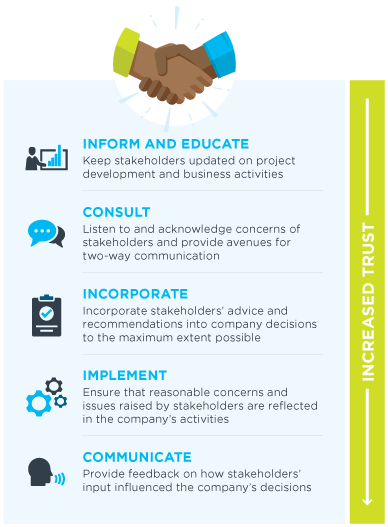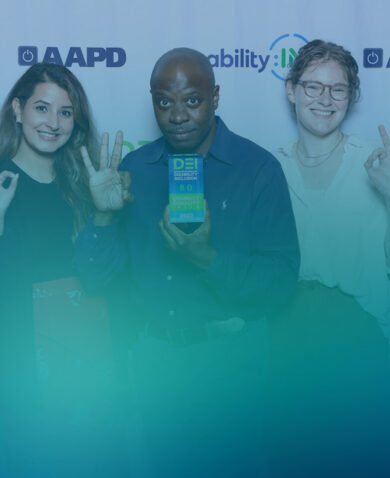
Resource Development in Nigeria: The Imperative for Social License to Operate
January 11, 2018 | 3 Minute ReadCan Nigeria beat the resource curse? Zira John Quaghe discusses a more inclusive approach to the mining and oil and gas sectors.
Extraction of oil, gas, and mineral resources brings about profound changes to societies. While traditional wisdom suggests that communities and regions with valuable extractive resources are likely to become better off with resource development, substantial research has shown that, to a surprising extent, resource development does not lead to proportional economic development. In fact, in some cases it can deter developmental strides by concentrating public wealth in the hands of a few. This unfortunate reality, as seen in Nigeria, has profound structural impact on national economies — notably by shrinking labor-intensive sectors such as agriculture and manufacturing and creating incentives for rent-seeking (obtaining economic benefits by manipulating the social or political arena rather than creating wealth). The potential negative impacts at community levels are more direct — such as economic displacement and irreversible environmental degradation. These impacts are linked to confrontations with locals, which have threaten continued extractive activity to varying degrees. This begs the question — how can Nigeria effectively translate resource wealth into sustainable economic development for local communities?
Inclusive Stakeholder Approach
Operating in developing countries like Nigeria, within communities with limited infrastructural and social amenities, poses a number of challenges to oil and gas and mining companies. But these conditions also provide an opportunity for companies to build trust by using resource development as a catalyst for local socioeconomic development. Oil, gas, or mining activities could directly strengthen communities through local employment, local procurement (of good and services), and indirectly through community investments or development projects. In practice, however, entrenching shared value between companies and communities is quite complex. This complexity is illustrated by the broadening definition of stakeholders — which now includes groups and individuals that can affect or be affected by extractive activities. Therefore, beyond meeting shareholder expectations, business continuity is also hinged on effective stakeholder relationship management, which shapes and consolidates relations and interactions between the stakeholders and company. Types of stakeholders include government authorities, communities and individuals, traditional rulers, civil society groups, employees and contractors, and local businesses.
Dialogue that Builds Trust
It is important for extractive companies to proactively foster transparent dialogue to gain a better understanding of the local dynamics, concerns, and needs of the communities in which they operate. This will promote better understanding of community expectations. Furthermore, and perhaps more importantly, continued dialogue will help in converging the interests of the company and local communities. Accessible and transparent dialogue platforms (such as a proper grievance mechanism) should be established to ensure that extractive companies continually listen and respond to community concerns. In order to obtain and maintain their social license to operate, companies should employ a tripartite approach that ensures: (1) internal alignment, which ensures that community considerations are incorporated into decision-making; (2) proactive management of risks and impacts; and (3) community-driven socioeconomic benefits through local development and social investment initiatives.
 Managing Risks and Impacts
Managing Risks and Impacts
International best practices recommend (and a number of financial institutions mandate) that companies analyze the risks and opportunities linked to their projects, with details on how negative impacts will be mitigated or eliminated. Through these assessments and studies (typically environmental and social impact assessments), early attention should be paid to the environmental and socioeconomic characteristics of host communities. Community members should be adequately educated on resource development and the potential risks, and their feedback should be incorporated into decision-making. Furthermore, companies should recognize not only formal but also informal permissions to enter and develop resources. Given that risks and impacts are dynamic, companies must effectively monitor and regularly engage with a wide array of stakeholders, ranging from civil society groups, communities, and government institutions.
Conclusion
Mining and oil and gas companies do not only need government permission to operate; increasingly, obtaining and maintaining a social license to operate is an essential part of Nigeria’s extractive industry. In essence, responsible extractive activities should be designed to optimize benefits for all parties involved, while minimizing risks and negative impacts. Such an approach should be consistent with local realities, encompassing enough to satisfy public scrutiny, and adaptable to changing realities. The implications of distrust between extractive companies and communities in Nigeria’s are well documented — there is ample evidence that failure to effectively manage relationships with stakeholders can lead to added costs, delays, conflicts, or even stoppage of operations. Therefore, it is important that extractive companies build trust with local stakeholders to ensure effective coexistence with communities. Resource development can indeed catalyze developmental strides when trust is established and stakeholders incorporate extractive projects into their shared identity.

















